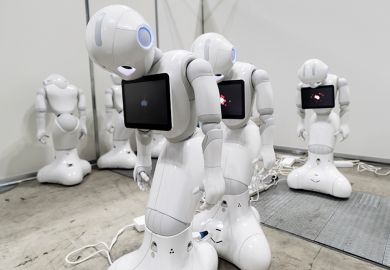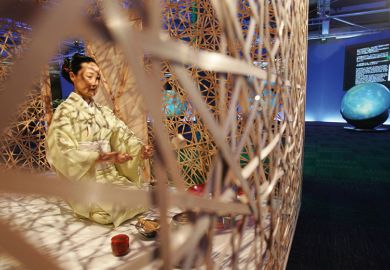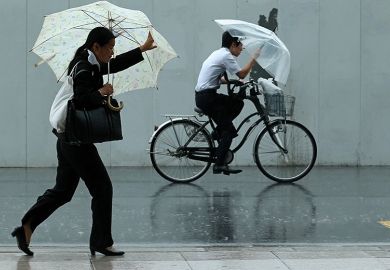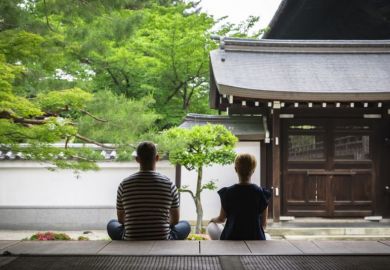More than a third of international scholars working in Japan believe that the country’s academic market is “closed” to foreigners, while almost half think that universities are only interested in hiring them to boost their metrics, according to a study.
A survey of almost 1,300 international academics at Japanese universities found that the majority (56.8 per cent) would still work in an institution in the country if they could make the choice again. But a high share of respondents highlighted that they were not fully welcomed by their university or other scholars.
More than a third (37.4 per cent) of foreigners surveyed agreed or strongly agreed that “the Japanese academic market is closed to international faculty members”, while a similar share (36 per cent) agreed or strongly agreed that “in general, Japanese faculty members are indifferent to their international colleagues”, rising to more than 40 per cent among UK and US citizens.
Almost half (47.3 per cent) said they felt that universities were only interested in attracting international faculty members “to increase quantitative indicators of internationalisation”, increasing to more than 50 per cent among US and UK respondents.
Meanwhile, 41.6 per cent of respondents agreed or strongly agreed that Japanese academics “regard international faculty members as temporary visitors”.
Since the 1980s, Japan has incentivised its universities to attract international staff and students in order to improve its rankings performance and offset domestic demographic decline through a series of excellence initiative-style projects.
The study, published in the International Journal of Educational Development, was based on responses from 1,285 full-time overseas academics.
A separate study published earlier this year based on interviews with international early career academics in Japan found that many felt “marginalised”, “disillusioned” and like “second-order” academics.
Futao Huang, a professor in the Research Institute for Higher Education at Hiroshima University and lead author of the paper, said that a large share of international scholars in Japan were “expected to only assume work roles and responsibilities which Japanese academics cannot take”, such as teaching English language programmes.
He also cited “distinctive Japanese culture and values such as seniority, ambiguity of Japanese private opinion and public stance, and difficulty of the Japanese language” as reasons why higher shares of international academics from the US and UK “feel isolated from Japanese society or their colleagues”.
Professor Huang suggested that Japanese universities should create “more favourable and friendly working conditions” for international staff and create opportunities to enable foreign and domestic workers to mingle.
However, James McCrostie, a Canadian and associate professor at Daito Bunka University, where he teaches English as a foreign language, said that “too many foreign faculty in Japan fail to make the effort to reach the required level of Japanese to fully function in a Japanese workplace”.
“Even when classrooms are English-only, becoming a fully integrated member of a Japanese university means you must be able to read and write Japanese, speak with the required levels of politeness, and also adopt Japanese decision-making methods,” he said.
Register to continue
Why register?
- Registration is free and only takes a moment
- Once registered, you can read 3 articles a month
- Sign up for our newsletter
Subscribe
Or subscribe for unlimited access to:
- Unlimited access to news, views, insights & reviews
- Digital editions
- Digital access to THE’s university and college rankings analysis
Already registered or a current subscriber?








